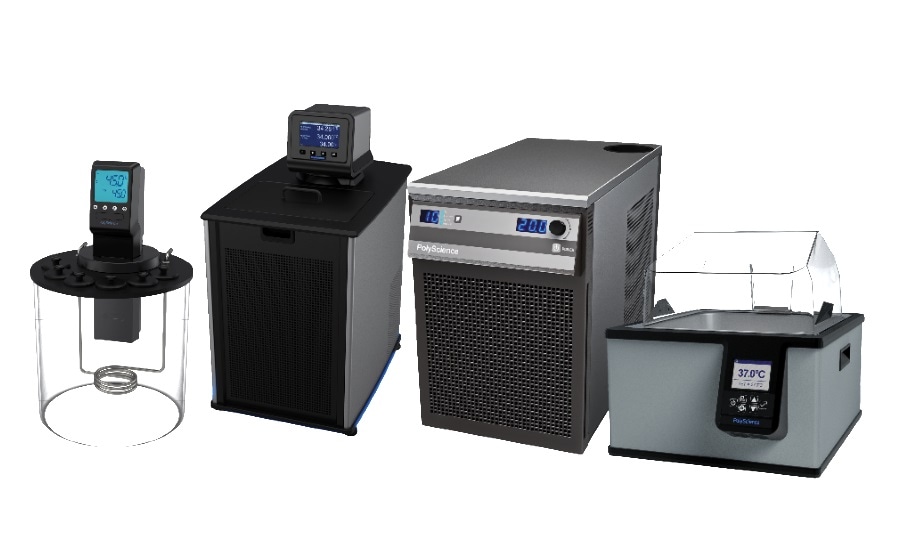An interview with Philip Preston, outlining the importance of temperature control in any experiment, and the solutions Polyscience will be presenting at Pittcon 2019, conducted by Alina Shrourou, BSc.
Please outline the importance of temperature control in any experiment.
Temperature control is essential to providing reliable results, whether it is in the biotechnology field or in quality control of viscosity samples. Additionally, a lot of analytical instrumentation requires precise temperature control or heat removal, as would be the case with lasers.
In what applications is temperature control important?
Temperature control is essential for accurate viscosity measurement, laser cooling, cooling of AA furnaces, ICPs, reaction vessels, distillation equipment, and biological sample control.
Temperature control is constantly part of our day-to-day lives, from picking up the injection molded telephone for which the injection mold equipment was cooled with a chiller, to medical purposes like CT scans, PET scans, PCR or DNA amplification. Take everyday things like shampooing your hair and pouring barbecue sauce - a key part of the quality control procedures on numerous liquid products is viscosity measurement, for which temperature control is an essential component.
How do PolyScience products aim to make researchers more productive in their work?
PolyScience products remove the variable of temperature control, allowing researchers to spend more time getting their results rather than either compensating for inadequate temperature control or waiting for samples to come to exactly the right temperature.
In many examples precise temperature control is essential, for example in distillation the yield will be significantly impacted if your temperature control is not up to par. This example is very applicable to the cannabis extraction market, which uses short path distillation and yield is a very important concern.
Can PolyScience products accommodate temperature control in different states?
PolyScience specializes in liquid temperature control. We offer products that will control the temperature for as low as -100 and up to 200 degrees celsius, and achieve stabilities of plus or minus 0.004 degrees celsius. All of these products are designed for use with liquid.
What advice can you give someone looking for the most suitable temperature control solutions to fit their specific research applications? Are there any features they should consider?
Firstly, it is essential to understand your heating and cooling requirements. Additionally, if external pumping is necessary, having a clear understanding of how much pressure and flow is needed is required for the application to be properly controlled. Additional features that should be considered will depend on things such as: would connectivity be desirable so that the temperature can be controlled or data logged?
This may be helpful as by being connected to a quality assurance program, features such as an external probe to compensate for heat loss or gain between the constant temperature bath and the application itself can be used.
At PolyScience we always consider the simplest solutions to be the ones that are best received by the customers, such as the noise reduction features on all our refrigeration systems.

Image credit: PolyScience
What solutions can PolyScience provide that includes these features? What features are considered?
PolyScience offers a broad range of connectivity as needed for external control or data logging of products. Furthermore, many of our units can be equipped with external temperature probes for monitoring or remote control away from the bath. We have also incorporated numerous patented features such as our whisper cool noise reduction system for the refrigeration systems.
What Products will Polyscience be showing at Pittcon 2019?
PolyScience will be showcasing a broad range of temperature control solutions such as constant temperature circulating baths, general purpose non-stirred water baths, and recirculating chillers.
We will be showcasing our new DuraChill line of recirculating chillers, which bring several new features to the market. These patented features include a self-changing condenser filter, a liquid level monitoring system, UV light control of biological growth in the fluid, and a 4.3 color touch screen display.
About Polyscience

PolyScience was started in 1963. They pioneered innovations ranging from the first zero-switching circulators to the first refrigeration systems for DNA amplification to an award-winning line of culinary products.